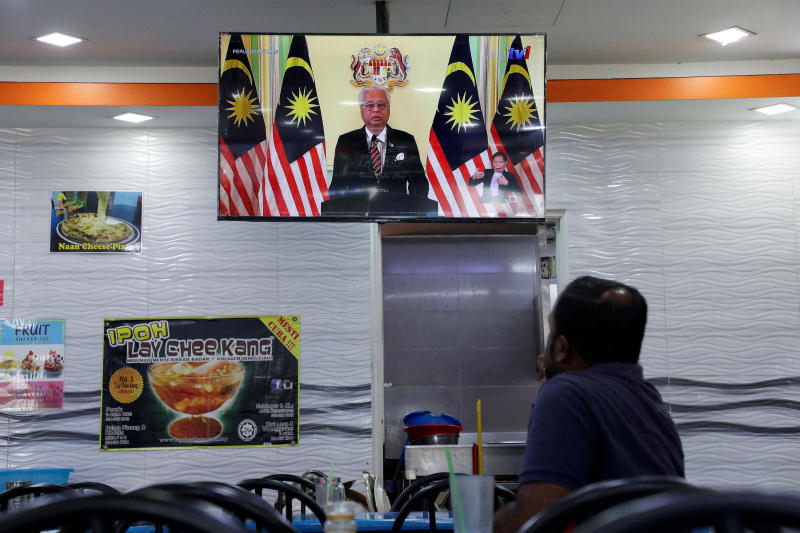
Malaysian Prime Minister Ismail Sabri Yaakob announced the dissolution of parliament on Monday, paving the way for elections this year as his ruling party seeks to strengthen its position following a run of successful local polls.
Ismail said he met with King Sultan Abdullah Sultan Ahmad Shah to gain approval for the dissolution, and the Election Commission would decide on the date of the vote. By law, a general election must be held within 60 days after parliament is dissolved.
“This dissolution was carried out in order to put a stop to the voices that all this while have been questioning the legitimacy of the government,” Ismail said in a televised address. He became Malaysia’s fourth prime minister in four years when he was appointed in August 2021.
While a national vote isn’t due until September next year, key members of the United Malays National Organisation wanted to hold it early to capitalize on the opposition’s disarray and redeem itself following a shock defeat in 2018 after roughly six decades in power. Umno returned to the ruling bloc two years later after the collapse of Mahathir Mohamad’s administration, but has led a fragile coalition since then.
The dissolution comes three days after Ismail’s administration presented a budget for next year that lowers taxes while still narrowing the fiscal deficit through more targeted subsidies. A similar sequence of events occurred in November 1999, when the Malaysian parliament was dissolved days after the spending plan was presented, and a general election was held later that month. A fresh budget was tabled again by the new government months later.
Umno President Ahmad Zahid Hamidi has said the administration is unstable due to infighting and the party wants a bigger mandate -- even if that means having to campaign through the floodwaters expected to hit Malaysia in the coming months.
“With this announcement, the mandate will be returned to the people,” Ismail said. “The people’s mandate is a powerful antidote for the country to create political stability and a firm, stable, respectable government after the 15th general election.”
Monsoonal flooding
Ismail had resisted moving up the election until recently, saying the timing wouldn’t be easy for the ruling coalition given concerns about inflation and a controversy over alleged corruption pertaining to a warships project. But then he brought forward the budget by three weeks to Oct. 7, raising speculation that an election was imminent.
Opposition and ruling politicians alike have objected to holding polls during the rainy season, which begins in November, after floodwaters late last year left dozens dead and led to more than 6.5 billion ringgit ($1.4 billion) in losses. The King on Sunday called on relevant agencies to make comprehensive preparations to face the risk of floods, Bernama reported.
“Any harm caused by the floods in Malaysia, and the decision to dissolve parliament -- Zahid Hamidi, Ismail Sabri and Barisan Nasional must be held accountable for risking the lives of the people for the sake of political power,” Democratic Action Party leader Hannah Yeoh said in a tweet.
The party will be tested by the jailing of Najib Razak, who began serving time in August after the nation’s top court upheld his 2020 conviction for corruption in relation to 1MDB, a troubled state fund from which billions were siphoned. While Ismail has cultivated a reputation as a defender of the independent judiciary by allowing proceedings against Najib to continue, Umno president Zahid has urged members to support a royal pardon seeking his release from the 12-year sentence. Zahid himself faces nearly four dozen graft charges.







